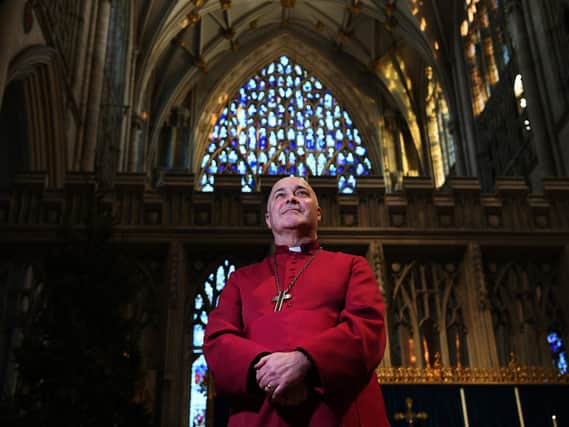New Archbishop of York wants to 'change the narrative' of secrecy and cover-ups in the Church of England


An investigation was launched into how Bishop Stephen Cottrell, Archbishop of York Elect, handled the allegations after concerns were raised with the Church’s National Safeguarding Team earlier this year.
The Right Reverend Cottrell, who is due to be formally confirmed as the 98th Archbishop of York in a virtual service next Thursday, was cleared of any wrong-doing - but the investigation into the original allegations and their handling is still ongoing.
Advertisement
Hide AdAdvertisement
Hide AdHe told the Yorkshire Post he “wanted to go public” in order to be open, transparent and “scrupulously honest” about the failings of the past.
The Rt Rev Cottrell said: “I didn’t want anybody to have any suggestion that things were being covered up just because I’m going to be the Archbishop of York or a special case.
“There has been a full investigation, it has been found that some things that should have happened didn’t happen and although nobody is suggesting that I am not somebody that cannot properly safeguard the church, nevertheless, this did happen whilst I was in post and I share the responsibility for that.”
The allegations date back to before he became Bishop of Chelmsford in 2010, and at a time when he was “moving between roles”.
Advertisement
Hide AdAdvertisement
Hide AdAfter meeting the survivor and hearing “what was a difficult and harrowing story” he spoke to colleagues about actions that needed to be taken “but failed to ensure that these were properly documented and followed through”, he said.
The Rt Rev Cottrell said he could not name the diocese the allegation took place in, but stated it was not in Yorkshire. He was previously based in Wakefield. He did not go to the police with the allegations as it was clear it was not what the victim had wanted.
“What I did put in place for her was some pastoral support because, to be honest, she didn’t tell me much in that first meeting, which is, in my experience, very understandable. Rightly or wrongly, my response was to support her, and alert others so that the case would be followed through. Unfortunately it was not.
“I am deeply distressed and extremely sorry,” the Rt Rev Cottrell said.
Advertisement
Hide AdAdvertisement
Hide AdThe Rt Rev Cottrell said the Church had “been too quick to protect its own reputation and slow to admit its failings” in the past.
“This must change, he said. “Those in public office should be subject to scrutiny.
“I wanted to be open about this, because I want to change the narrative about the church and safeguarding.”
The Archbishop of Canterbury, Justin Welby said he had read independent legal advice on the matter and that the Rt Rev Cottrell “clearly should have informed the authorities and made fuller notes of what he did in this case”.
Advertisement
Hide AdAdvertisement
Hide Ad“He has shown humility in immediately admitting he failed to act as he should have done in this case, when the matter was raised with him by the NST this year,” the Archbishop said. “He has also said so publicly. I am also reassured that he did refer it on and saw the significance of offering support and contacting the survivor who must always be the priority.”
A statement from the National Safeguarding Team said the Rt Rev Cottrell had shown “insight and humility” in accepting that he failed to act as he should have done in relation to the “serious matter”.
It said: “The NST investigation concluded that he posed no current risk of not responding appropriately to safeguarding disclosures and that informal action was a reasonable and proportionate response to the case.”
Comment Guidelines
National World encourages reader discussion on our stories. User feedback, insights and back-and-forth exchanges add a rich layer of context to reporting. Please review our Community Guidelines before commenting.